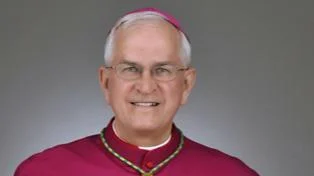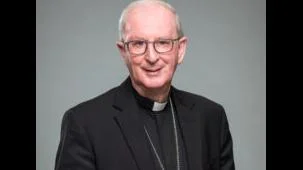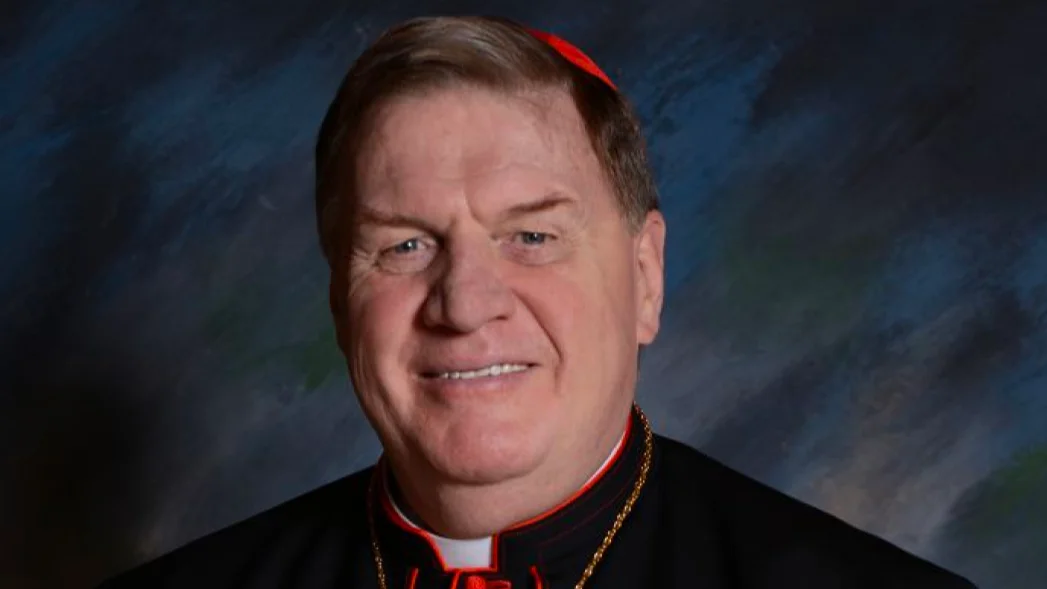
Reverend Joseph E. Kurtz, D.D. Bishop | Archdiocese of Louisville
By Mark Zimmermann, OSV News
WASHINGTON — When Washington Auxiliary Bishop Evelio Menjivar-Ayala returned to rural El Salvador earlier this year, his 90-year-old mother, Catalina Ayala de Menjivar, enlisted his help with weeding and tending crops on their family’s farmland.
“When I go back home in El Salvador, my mom is like (telling me), I have to put this ring away, and get the shovel and the machete and help her. She’s 90 years old, she still works,” said the 54-year-old bishop in an interview with the Catholic Standard. “I went back home, and I helped to build a shed for the chickens.”
Work has been integral to Bishop Menjivar's life from his childhood on his family's farm in El Salvador to various jobs he held after immigrating to the United States. He was ordained as a priest for the Archdiocese of Washington in 2004 and became an auxiliary bishop for Washington in 2023.
Bishop Menjivar is believed to be the first U.S. bishop born in El Salvador. He summarized his work history during a May address at Georgetown University where he received an honorary doctorate.
“In 1990, I arrived in Los Angeles, California, with only a change of clothes in a backpack but full of dreams,” he told graduates. “As most immigrants do, I did any kind of job I could get: receptionist, construction, janitorial work, painting, youth ministry. Meanwhile, I took English classes at night and studied for the high school equivalency degree.”
Reflecting on his two decades as a parish priest before being appointed auxiliary bishop by Pope Francis, he added: “Not bad for someone who began cleaning restrooms and painting houses with no English… We all must start somewhere and seize every opportunity that life offers us.”
Arriving as an undocumented immigrant at age 18, Bishop Menjivar applied for asylum and eventually gained legal status before becoming a U.S. citizen in 2006. His first job was as a receptionist at a law firm in Los Angeles where he earned his first paycheck.
Next came maintenance work at clinics involving tasks such as painting and flooring installation.
“Work is always a blessing,” he said. “I really liked my work as a painter because I could see the results of my work... Just fixing a house or place brings satisfaction.”
In Maryland's Washington area, Menjivar worked various jobs including janitor roles at UPS warehouses before taking up painting again for two years.
“Working with others is a really beautiful experience," said Bishop Menjivar. "Building up community (at work), you start caring for one another."
However often exploited like many immigrant workers; he recalled not being paid by one employer while working for a painting company.
Two months after becoming bishop; he celebrated Mass honoring construction workers who died due workplace accidents wearing hard hat alongside priestly vestments symbolizing solidarity towards them & their families - emphasizing importance safety measures lacking among immigrants/non-unionized laborers
For episcopal motto chose phrase “Ibat cum illis” (“He walked with them”) resonating deeply given personal experiences both immigrant/worker
“We need walk people meet where they are” adding how understands challenges faced supporting themselves/families home countries sacrifices made
Trained labor priest learning about Church’s support unions aiding previous/current generations achieve better pay/security thus American dream attainment
“The first thing labor movement does creates solidarity" noting importance standing together against exploitation ensuring rights protection via collective action rather than individual efforts alone
Labor Day celebration dedicated acknowledging worker contributions society building better world through sacrifice/hardship ultimately uplifting spirits sense purpose fulfillment derived meaningful employment co-creating alongside God reflected Eucharistic prayer during Mass consecration process signifying divine-human collaboration producing bread representing fruits combined efforts heavenly grace bestowed upon humanity
###






 Alerts Sign-up
Alerts Sign-up